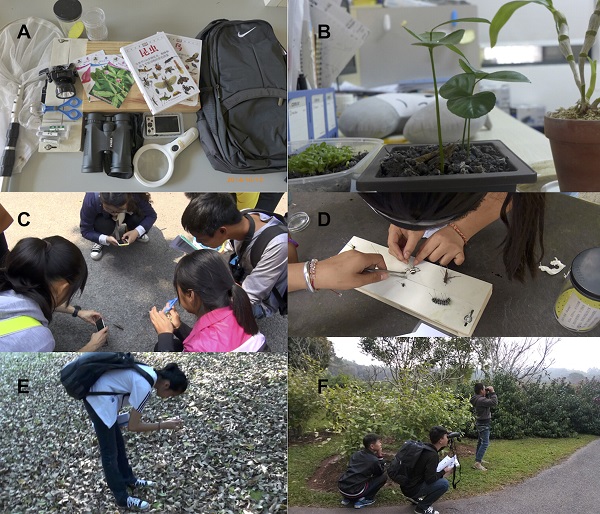
Environmental education programs involving nature experiences have repeatedly been demonstrated to affect individuals’ conservation-related affective and cognitive attitudes, willingness, and behavior.
In China, less connection with nature has been criticized as one of the main problems in children’s environmental education. This phenomenon occurs in both cities and rural areas. The biodiversity bot-spot like Xishuangbanna is no exception.
Prof. CHEN Jin and his team of Xishuangbanna Tropical Botanical Garden (XTBG) conducted a study to determine if establishing nature clubs enhances students' conservation behaviors, mitigating Xishuangbanna's traditional hunting and insect eating lifestyle.
The researchers developed a conservation education program that involved organizing nature clubs in local middle schools. The program focused on birds and insects because hunting birds and insect consumption, which remain prevalent in Xishuangbanna and threaten biodiversity.
The researchers provided students with nature observation toolkits (Including binoculars, a camera, a magnifying glass, insect specimen production tools, illustrated books on insects and birds, and some seeds) to encourage students to interact with nature.
They assessed the impact of that nature club program on students' bird and insect conservation behavior with reference to attitudes, personal norms, and perceived behavioral control (PBC) as the three key determinants of behavioral intentions according to the Theory of Planned Behavior (TPB).
Questionnaires and interviews were used to assess the impact of nature clubs on students’ conservation behaviors.
They found that nature club program participation probably enhanced participants perceived behavior control regarding animal conservation. In turn, changing PBC affected participants' self-reported conservation behaviors, such as decreasing frequencies of eating wild insects and/or increasing frequencies of convincing other people to not hunt birds.
"The nature club affected my confidence to persuade others to not hunt birds; sometimes, people will take my advice", said a middle school student participating in the nature club program.
"Future programs should consider ways to engage more adolescents in long-term nature clubs", said Prof. CHEN Jin, principal investigator of the study.
The study entitled “Nature club programs promote adolescents’ conservation behavior: A case study in China’s biodiversity hotspot” has been published in The Journal of Environmental Education.


86-10-68597521 (day)
86-10-68597289 (night)

52 Sanlihe Rd., Xicheng District,
Beijing, China (100864)

